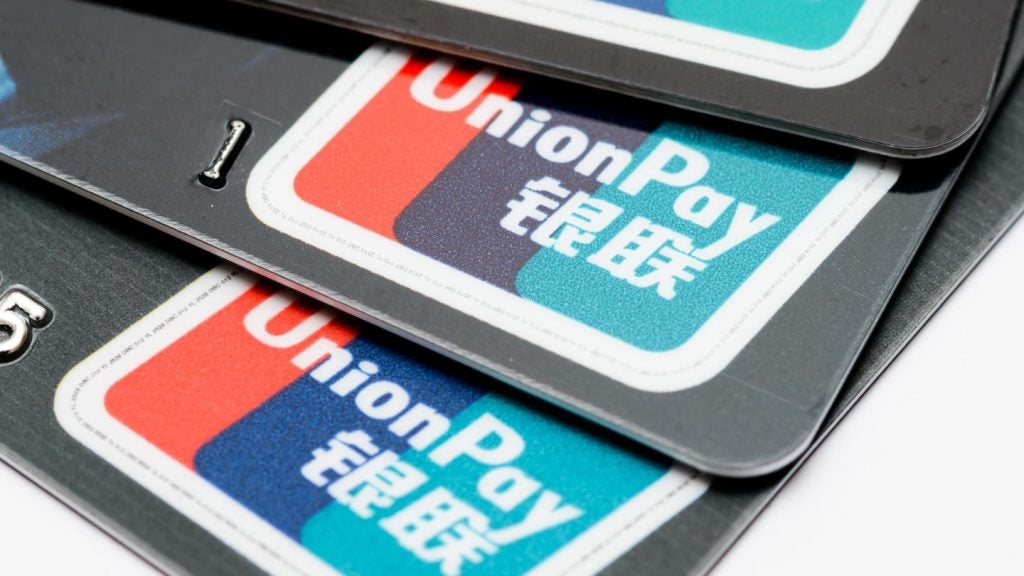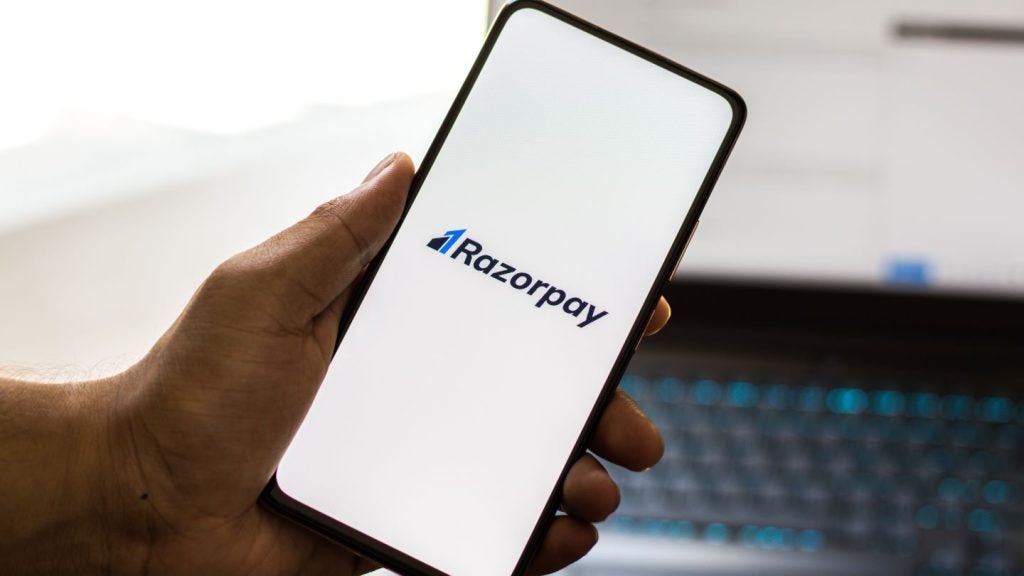At this year’s Prepaid Cards
Summit, held in Rome on 12-13 November, delegates were left in no
doubt that, despite difficult economic circumstances, there are
many opportunities for prepaid to stand out from the crowd across
many industry segments. John
Hill and Victoria
Conroy report.
Rome was the setting for the fifth
annual Prepaid Cards Summit on 12-13 November, which welcomed over
320 delegates from around the world, representing banks, payment
networks, vendors and programme managers, and an array of leading
prepaid industry speakers who gave their market-shaping insights
into one of the most dynamic areas of the payment industry.
Poste Italiane leads the
way
Rome was a fitting location for this
year’s event, given that Italy is inarguably the most successful
and vibrant prepaid market in Europe (see CI429). Indeed, Italy is
home to one of the world’s most successful prepaid programmes, the
Postepay card offered by Poste Italiane, which now has 5.6 million
cards in issue.
Flavio Mastrangelo, head of prepaid products
at BancoPosta, the financial arm of Poste Italiane, and Alessandro
Albano, head of payment systems at BancoPosta, both took to the
stage to outline the development of the programme to date and newer
prepaid innovations that the organisation is now rolling out. Now
in its sixth year, the Poste Italiane Postepay card has proved
incredibly popular with younger consumers. Around 48 percent of
Postepay holders are under the age of 30, who account for 55
percent of all transactions.
However, Postepay is not just a product for
young consumers in Italy – 10 percent of customers are non-Italian,
and 30 percent of all Postepay transactions take place abroad.
Around 54 percent of Postepay transactions take place on the web.
The success of the product has provided Poste Italiane with a
valuable cross-selling tool – 52 percent of Postepay customers have
another Poste Italiane product.
Poste Italiane is now branching out into other
prepaid products, such as a corporate offering and the launch of
Poste Italiane as a mobile network operator to capitalise on the
synergies between prepaid and mobile payments. In 2007 it also
launched a contactless card and there are now 60,000 active cards
in the marketplace, which has led to Poste Italiane developing
multi-application prepaid propositions for use in the transit and
access spaces. Its latest product launch in January 2010 will be
the ‘Postepay&Go’ contactless prepaid card for use in public
transportation in the city of Ravenna. And Poste Italiane is also
moving into the money transfer space through its Postepay TWIN
proposition, which is targeted at the international remittance
segment and is a prepaid card-to-card solution available at over
14,000 branches of Poste Italiane.
Michael Birchall, prepaid product manager at
the UK Post Office, gave an exclusive launch announcement to the
Summit. Following on from the launch of the Travel Money prepaid
card in 2006 and the Christmas Club and Gift card in 2007, the Post
Office has taken the decision to launch a prepaid closed-loop card,
the Post Office Budget card, in 2010.
It works as a deposit product issued by the
Bank of Ireland and works in the same way as Post Office savings
stamps. Birchall also announced that the Post Office is considering
launching a sterling denominated general-purpose prepaid card to
leverage the Post Office’s network and brand.
An OJEU (Official Journal of European Union)
tender notice will be published in December 2009 or January 2010 to
engage with interested parties, with Birchall telling delegates to
“watch this space”.
One of the most interesting and successful
applications of prepaid cards has been the Government benefit
scheme currently running in Italy. Mattia Adani, director for
special projects, research and analysis at the Ministry of Economy
and Finances, explained how the programme, run in conjunction with
Poste Italiane, works.
“The programme is the payment of social
benefit using a prepaid debit card. Once people pass the screening
we give them a prepaid card with €80 [$119] loaded,” Adani
said.
From there, every two months we reload the
card with €80 and with every reload we recheck all the
requirements. The target participants for the scheme are low income
citizens with an adjusted annual income of €6,000 or less. This is
what is called an absolute poverty programme in that these are very
poor people.”
There are many problems associated with
welfare; distributing the money, making sure the money goes to the
right person, attempting to get the recipient to spend the money on
crucial items and assessing the right amount of welfare to
allocate. Adani says that in the Italian system, several of these
can be addressed with relative ease by using prepaid cards.
“The benefits card can only be used in grocery
stores, pharmacies or to pay utility bills. There is also a filter
in the card, which makes it impossible for users to withdraw cash
at ATMs,” he added.
“So far we have screened 800,000 applications
and admitted 620,000 participants. Of those, around 500,000 are
still in the programme. There is a pretty quick turnover for two
reasons; the programme is designed for the very young and the very
old, so basically people will leave because they pass away or
because they grow too old for the programme.
“So far we have loaded €270 million onto the
cards of which more than €200 million has been spent in 9 million
transactions. So far the average load per card has been €520,
although 5 percent have had more, which happens because families
can choose to put all their eligible children on the same
card.”
Challenges to overcome
Volker Schloenvoigt, manager at
payment consultancy Edgar Dunn and Co’s London office, voiced some
concerns that perhaps some mature countries were still not ready to
accept prepaid cards. Germany in particular was singled out as a
market that has been very reluctant to embrace prepaid.
“The problem in Germany is that it hasn’t
really caught on,” he said.
“There are about 200,000-300,000 active cards,
ignoring gift cards, and there has been some very interesting
research recently by the German central bank, looking at payment
preferences of consumers. Their conclusion was that only about 0.2
percent of transactions by value are going through prepaid cards at
the moment. I have seen figures from a third party recently that
indicated the prepaid opportunity in Germany next year would be
roughly €10 billion.
“If we assume that is roughly about €600
billion to €700 billion worth of retail transactions in Germany and
we cover 0.2 percent, then it is roughly €1 billion to €1.5 billion
going through prepaid cards, which leaves a huge gap between where
we are now and where we might be in 12-18 months time.”
Schloenvoigt went on to say that part of the
problem is that Germany has been regulated in such a way as to make
many of the key starting points of prepaid unnecessary, such as the
issuance of prepaid to the underbanked. For example, German banks
by law have to provide people with current accounts, meaning that
by definition the number of unbanked people is very low.
He the explained how despite a problem with
fee structuring, many banks are still continuing with their prepaid
programmes.
“In Germany there are free credit cards with
free ATM access and so forth, and so when you look at some of the
prepaid card pricing it might not necessarily be very competitive,”
Schloenvoigt added.
“If you are targeting the unbanked, and then
charging €40 a year management fees plus all sorts of other costs,
intuitively that doesn’t quite work. Fee levels are quite high, and
if you speak to some of the banks that are operating in that
particular industry they will say that even with that fee
structures they are just about breaking even.
“However, they will also say they don’t mind
just breaking even with these products, because it gives them the
ability to then cross sell other financial products to the young
population and try to hook them with this type of card.”
Prepaid in emerging sectors and
markets
Fiona Duncan, vice-president at Visa
Europe heading up the Prepaid Centre of Excellence, spoke about
upcoming technologies in the prepaid and contactless card sphere,
explaining what she currently sees as the major demands in the
market.
Development of mobile contactless technology
has been difficult, with ideas and ways of best enabling the
technology changing seemingly from month to month. Initially a
contactless card was stuck onto the outside of the mobile handset,
then the same chip moved inside the handset, and now payments are
being integrated with the handset software itself. Duncan believes
one of the main issues with mobile payments, especially
contactless, has been how these changes are complicating the market
for manufacturers and issuers.
“When we speak to our customers, prepaid is
what they want on their mobile,” she said.
“It is different, people love their mobiles,
but they are not comfortable yet putting credit or debit on their
phones, they want to get used to it, they want to segment it and
they want that control. Once we have the open platform it makes it
much easier for anyone to enter that arena, and then that should be
followed closely by person-to-person payments in the same
manner.”
Innovations in the credit and debit market
were also covered by Duncan, especially as a product recently
launched by Visa attempts to combine credit, debit and prepaid.
“We’ve just launched a product called Simply
One,” Duncan said. “This puts debit and credit on the same card,
and this enables the consumer to choose how they want to pay at the
point of purchase. Now we are in the middle of discussions with
members to launch this as ‘prepaid plus’. What this means is that
as a prepaid issuer you have the ability to start to integrate
other payment applications in for the consumer at that point.”
New contactless prepaid initiatives are also
being rolled out in Slovakia by Volksbank. Peter Szenkuroek, head
of retail international, and Ivan Kubaš, division director of
alternative sales channels, told delegates that Volksbank would be
launching a prepaid contactless card for use on public transport in
the city of Bratislava by the first quarter of 2010. Around 140,000
cards will be issued.
The bank will also be rolling out a prepaid
programme to replace paper meal vouchers at the end of this year,
representing the first card project of its kind in Central Europe.
The cards will be for electronic use only, allowing online
authorisations, for use in selected shops and restaurants.
It’s not just technological advances where
prepaid is evolving – the solution is also being rolled out in
emerging markets where payment cards have only been in existence
for a few years. One of the most interesting presentations at this
year’s conference was by Leena Abbas, head of the credit card
department for the Trade Bank of Iraq (TBI).
She spoke about the challenges Iraq must
address in terms of education and security before it can establish
an electronic banking structure.
Despite the current situation in Iraq and the
difficulties with establishing a stable infrastructure for economic
activity, Abbas outlined what looked to be a particularly ambitious
prepaid card project involving all the banks in Iraq, named Akadia,
which is aimed at developing a multi-function Visa-branded prepaid
programme for social benefit disbursements. The project is unique,
not just in its setting but also because it is using fingerprint
biometric authentication in addition to visual and PIN or signature
authentication.
“The card has both a picture of the cardholder
on the actual card and a record of their fingerprint on the card
chip, which enables us to identify the user at either a workstation
in the bank or one of our ATMs,” Abbas told delegates.
“The cost savings for the banks are
significant; the costly and difficult process of customer
registration is done only once, then customers can be identified
reliably for all banking and other services. Project Akadia can
become a huge factor in reviving Iraq’s economy and helping pave
the way to real peace,” Abbas added.
The Summit’s delegates also heard about some
new initiatives that are being rolled out into the wider European
payment marketplace. Dominique Buysschaert, CEO of PayFair, which
is positioning itself as a pan-European debit scheme to rival Visa
and MasterCard, announced that PayFair would also be looking to
move into the prepaid space.
Acceptance of PayFair has already been
implemented in Belgium, having started at retailer Colruyt in
October 2009, and Buysschaert added that “good progress with banks
and retailers” has been made in Germany and France, with contacts
established in the UK, Spain, the Netherlands, Italy and
Poland.
PayFair is now moving into the prepaid space,
with Buysschaert outlining a project being developed with a
university to roll out a prepaid multi-application student card
offering access control, contactless payment inside the university
and external payment at merchant partners. According to
Buysschaert, PayFair can offer multi-technology cards combined with
low-cost instant issuance solutions without PCI (Payment Card
Industry) hurdles.
Prepaid in difficult economic
times
Moving to less well-established
payment card markets, several speakers turned their attentions to
how prepaid could act as a bridge between largely unbanked
populations and consumer desire for greater purchasing power and
efficiency.
Laura Kelly, senior vice-president of global
prepaid solutions at MasterCard Worldwide, outlined how prepaid
solutions could serve emerging consumer needs.
“A new consumer landscape is emerging,” she
told delegates. “Indian consumers are topping consumer confidence
surveys, Brazilian and Argentinean consumers are expected to lead
Latin America’s economic recovery, and Middle Eastern consumers
using the internet for social networking and online shopping have
increased dramatically – now representing 5.2 percent of the
world’s users.”
Looking at the Middle East, Kelly told
delegates that although it is at an early stage of development,
“there is tremendous potential for payroll and remittance
combinations, and prepaid public sector and travel is another
leading growth driver”. In the United Arab Emirates alone, prepaid
gross dollar volume reached $0.7 billion in 2007 – by 2010, this is
estimated to grow to $4.4 billion, and by 2015 to $18.4
billion.
Many in the industry have highlighted prepaid
as an ideal consumer and corporate tool to control spending and cut
costs, two themes which have become all the more important during
the recent global economic turbulence. The keynote presentation of
the Summit was given by Matt Lanford, head of prepaid in Europe at
MasterCard Worldwide, who outlined how the economic situation had
created a “golden opportunity for prepaid” to meet all stakeholder
needs. However, he said, the challenge over the next year was for
the industry to demonstrate that “prepaid is more than a
recessionary phenomenon.”
Above all, Lanford stated, “prepaid offers the
opportunity to diversify customer offerings to meet changing
consumer demands, rejuvenate customer relationships and improve
‘stickiness’, differentiate from competitors, and harness valuable
information about customers’ spending habits through the natural
extension of existing product portfolios to include prepaid.”
<
For more information on the event, please
visit www.prepaidcardssummit.com. The Prepaid Cards Summit was
kindly supported by MasterCard (Premier and Workshop sponsor),
First Data (Gold sponsor), SIA-SSB (Gold sponsor), Visa (Gold
sponsor), Accor Services (Silver sponsor), FIS (Silver sponsor),
PayPal (conference bag branding), Ukash (badges and lanyards
sponsor), BemroseBooth (exhibitor), International Business Wales
(exhibitor), Stored Value Solutions (USB sponsor), Transact Network
(lunch session sponsor), Citi (brand session sponsor), Epipoli
(brand session sponsor), Laser (brand session sponsor), ecommlink
(brand sponsor), Euronet Worldwide (brand sponsor), and the
official research partner, TNS.












